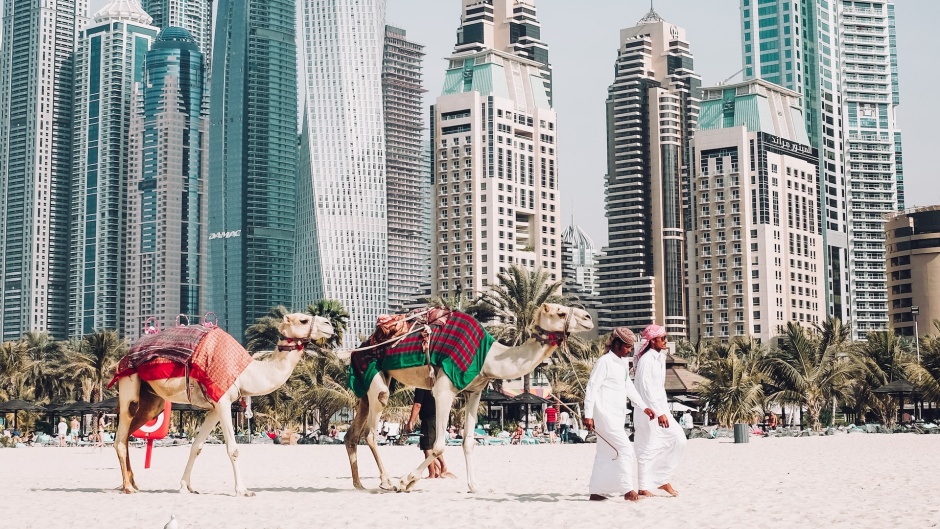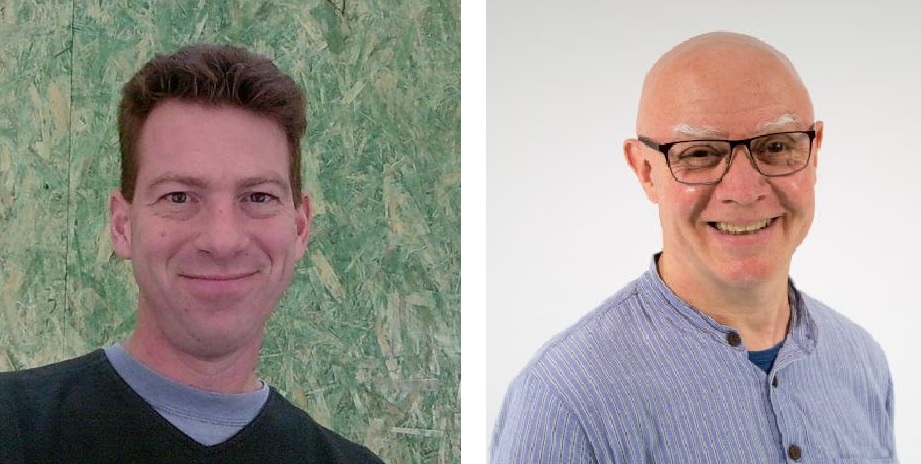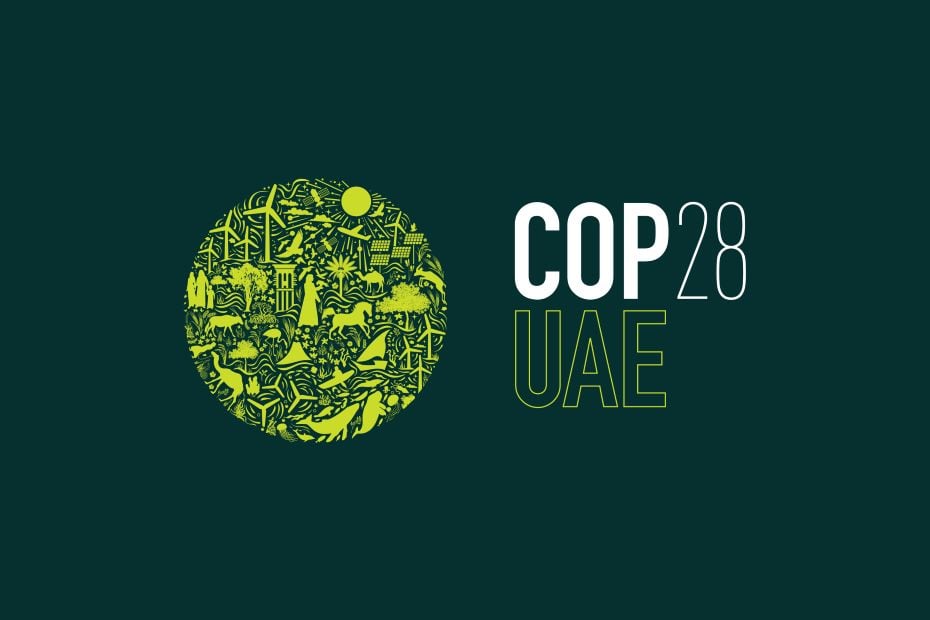Is a top oil-exporting country the best host for COP28?
Three Christian voices comment on the UN Climate Conference in the United Arab Emirates at the end of 2023. “It is vital that we end the fossil fuel industry’s influence over climate policy”.
DUBAI · 21 FEBRUARY 2023 · 15:38 CET

For a second consecutive year, an Arabic country will host the United Nations Climate Change Conference, better known as COP (Conference of the Parties).
At the end of 2023, all kind of actors involved in the debate will travel to Dubai, capital of the United Arab Emirates (UAE), a rich Middle Eastern country of around 10 million citizens situated south of the strategic Strait of Hormuz - a vital transit point for crude oil.
What most people outside the country know about the UAE is that it has a desert climate, that it enjoys a high GDP per capita, and that it is a member of the Organization of the Petroleum Exporting Countries (OPEC).
The country is a federal monarchy consisting of seven ‘Sheikdoms’ working as an autocracy. In the Emirates, there are no free elections nor guaranteed fundamental freedoms such as freedom of speech or religious freedom.
Should the United Nations hold a global gathering “to unite the world towards agreement on bold, practical, and ambitious solutions to the most pressing global challenge of our time” in a country such as the UAE?
Is the Emirates the best scenario for the COP28’s “prime opportunity to rethink, reboot, and refocus the climate agenda”?
For a moment we thought it was a joke!
Appointing an oil company CEO to preside over #Climate talks is unbelievably shameless. Everything is so wrong about this.
Has the lead negotiator seat for #COP28 been bought?
#COP28UAE pic.twitter.com/xACNxDuEbU— A Rocha Ghana (@arochaghana) January 13, 2023
Evangelical Focus asked several Christian experts about the dilemmas that come with this year’s COP28.
Dave Bookless, Head of Theology at the Christian conservationist group A Rocha, says his organisation has “serious concerns about the appointment of Sultan Al Jaber, CEO of the Abu Dhabi National Oil Company, as Chair of COP28”.
The same views has Paul Cook, Head of Advocacy at Tearfund, another Christian organisation much involved in the climate talks. “The choice of the United Arab Emirates, an oil-producing nation, as COP28 host - and in particular the appointment of an oil CEO as its president - has inevitably sparked concern and the prospect of a significant conflict of interest”.
“At any COP, the host country and president play an important role in setting the tone and level of ambition for the conference, and in influencing the outcome”, Cook explains. “The UN needs to develop clear policies and guidelines for host countries to prevent such conflicts of interest”.

Paul Cook of Tearfund and Dave Bookless of A Rocha. Reasons to trust in a positive outcome
This said, host nations “are expected to set aside their own interests and to act in the interests of the planet and the global community as a whole”, says the Tearfund representative, and “the UAE’s suitability as a host country depends largely on its ability to do this”.
Another reason for hope is that another Emirati will have much influence in the outcome of the conference. “We welcome the news that Razan Al Mubarak, the President of IUCN (the World Conservation Union, of which A Rocha is a member) has been appointed as UN Climate Change High-Level Champion for COP28”, says Dave Bookless.
“Al Mubarak is an outstanding conservationist and will help with the vital need to tackle climate change through nature-based solutions, something A Rocha has been advocating for strongly”.
The large influence of oil companies
The “wider problem”, says Paul Cook, is the growing influence of fossil fuel companies. “The reach of the fossil fuel industry was evident at COP27 - both in the fact that fossil fuel lobbyists outnumbered almost all country delegations and in the omission from the final deal of a pledge to phase out all fossil fuels”.
Dave Bookless quantifies the number of oil and gas executives at last year’s conference in Egypt at “over 600”, and this “despite overwhelming scientific demands for oil production to cease”.
If the aim is “to consign fossil fuels to history”, continues the Tearfund representative, “it is vital that we end the fossil fuel industry’s influence over climate policy - and a good start would be for the UAE, as COP28 host, to act decisively to curtail its power”.
Cook insists: “There is no room for new fossil fuels if we are to limit warming to within 1.5C and deliver climate justice for millions of the most vulnerable people around the world. I expect that climate activists around the Middle East will hold the UAE accountable for that”.
A chance to strenghten human rights?
As with other events that attract global attention, COP28 also arises other questions about fundamental freedoms in the host country.
“COP and similar global events could be opportunities”, a human rights expert from an Arabic background told Evangelical Focus, but “the question is: how can we make good use of them?”.
While the Qatar FIFA World Cup is thought to not have had a major impact in the improvement of human rights in the country, last year’s COP27 conference “was incredibly useful to Egyptian human rights advocates in ways that the government did not expect and was not able to stop”, says this person, who knows the Middle Eastern context well.
Instead of shouting human rights slogans from Western contexts which sound “hypocritical” in the Middle East, a wiser approach, says the activist, is to “strengthen the repressed local human rights groups” in the country, especially those who have shown to be “broad and inclusive”.
“Excluding States is more likely to make the situation worse for human rights”. And this leads to “the question that I believe we need to ask: how are national Evangelical churches and leaders doing at the local level in relation to their respective governments?”
Why should Christians engage?

“Christians care about the climate emergency because we follow a God of justice, and those who have done the least to cause this crisis are suffering the most. This global issue demands a global response; who better to be at the forefront of it than the global Church? That’s why we’re engaged”.
“Climate negotiations take place in safe, comfortable, air-conditioned conference rooms - worlds apart from the daily reality of millions of people suffering the effects of the very crisis they are designed to address. It’s vital that the voices and priorities of those most affected are front and centre of the climate negotiations. Christian organisations have a key role in amplifying the voices of the most vulnerable communities across the world and to hold leaders to account for keeping their promises and urging wealthier nations to step up to their responsibilities”.
Published in: Evangelical Focus - life & tech - Is a top oil-exporting country the best host for COP28?
Since you are here…
Evangelical Focus is a news and opinion platform that brings together Christians from across Europe and other parts of the world. We need the support of our readers to make this media project sustainable in the long term. You can support our work! Read about Evangelical Focus’s sustainability here.
Would you like to support the work of Evangelical Focus?
Use one of these methods. You can also transfer your donation to “Areópago Protestante / Evangelical Focus” IBAN: ES8521000853530200278394 (Swift / BIC: CAIXESBBXXX). Subject: “Donation Evangelical Focus”
